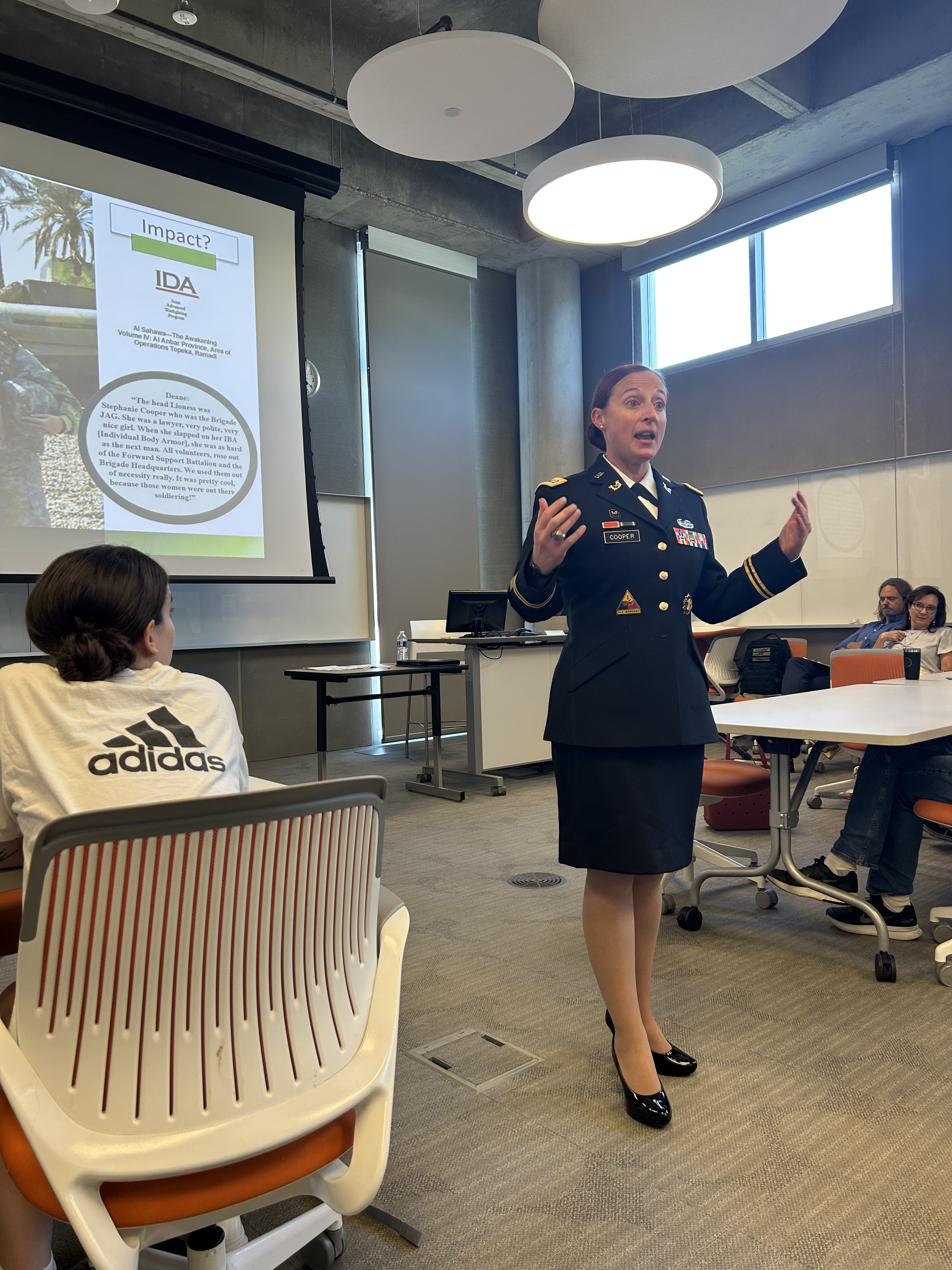Our Department in the Community
Political science and philosophy students, alumni and faculty are highly engaged with our community. Alumni are active as city and state employees, elected officials, entrepreneurs, nonprofit managers, and in many other capacities. Our students volunteer, serve in legislative internships, engage prisoners in discussions of philosophy, and hold positions in a variety of organizations. Our faculty regularly engage with the public through public speaking engagements and writing in public outlets such as Washington Post, New York Times and The New Yorker.
Philosophy in Prison Program
Our capstone community engagement program, Philosophy in Prison, engages prisoners in philosophical texts and great philosophical ideas through reading and discussion with our students.
Philosophy in Prison is a philosophy reading group at Lansing Correctional Facility in Lansing, Kansas, organized and run by the Department of Philosophy. The program creates diversity in the field of philosophy by demonstrating its humanitarian potential. We believe the program enriches the lives of all involved.
The ages of the men in our program range from 18 to 50, with sentences ranging from 10 to 30 years. Our program gives young incarcerated men the confidence to challenge themselves scholastically and the tools to continue this growth once they are released. It gives the older men in the program a chance to demonstrate to their families and children that they are committed to broadening their beliefs and values during their time in prison. Additionally, UMKC students have the unique experience of learning and discussing ideas with people who may have a completely different point of view from their own.
The group meets for an hour and a half to discuss various texts and philosophical themes. We specifically include texts written by great philosophers who were writing during incarceration or about incarceration, such as the dialogue between Socrates and Crito while Socrates was in prison in Athens. In addition to readings by incarcerated philosophers, we also cover epistemology, religion, aesthetics, ethics and philosophy of mind.
Program Mission
Our hope with this program, along with an interesting teaching experience for the students, is that the prisoner will receive some kind of relief from the sessions. Ideally, our goal is to allow the prisoners an outlet to explore their minds in ways they may not have been shown before. Philosophy is a great way to find an opinion and a voice.
The program facilitates a unique leadership experience for UMKC students. Each week a selected student leads the discussion covering the assigned reading at the prison. Philosophy in Prison brings college students together with incarcerated prisoners in the sharing of perspectives behind prison walls. Two distinct groups intertwine through a dynamic in which participants have a chance to reconsider stereotypes and myths while examining their own minds in discussing the literature of self-empowering philosophy.
Program Goals
With this program, we realized philosophy has the ability to make an actual change in the world and inspire others to do the same. We have been working on expanding the program throughout the Midwest. Although philosophy and prison programs are becoming more popular in America, most of the interest remains on the coasts. We would like to facilitate and mentor other universities in the Midwest to create a program of their own.
If you are interested in joining Philosophy in Prison, please contact faculty mentor Clancy Martin.
Political Science Internships
The political science internship program facilitates a wide array of internship opportunities for students interested in working with local or national nonprofits, political campaigns, and government officials. Students interested in for-credit internships with the Missouri and Kansas City legislatures should contact Dr. Greg Vonnahme. Students interested in other for-credit internships should meet with Dr. Antonio Molinar. Students may receive credit for paid or unpaid internships.
Legislative Internships
UMKC students serve as legislative interns in both the Missouri and Kansas City legislatures. Professor Greg Vonnahme coordinates the legislative internship program. Interested students should contact Dr. Vonnahme for more information regarding the application process and requirements. Accepted students will enroll in Political Science 491 and be paired with a legislator. Transportation one day per week is provided for students interning in the Missouri Legislature.
Non-Legislative Internships
Bridging the Civil-Military Gap
The Department of Political Science and Philosophy is a proud partner of the Bridging the Civil-Military Gap Project at UMKC. The project, which is funded through the National Endowment for the Humanities Dialogues on the Experience of War program, brings civilians, veterans and service members together to build understanding between the two groups and facilitate healthier reintegration experiences for veterans. Political science professor Dr. Rebecca Best is a project PI.
On this page

